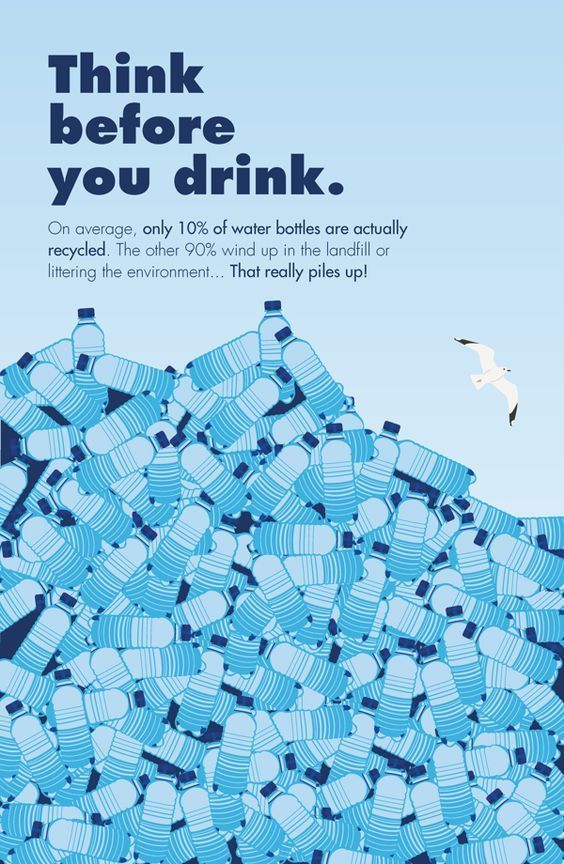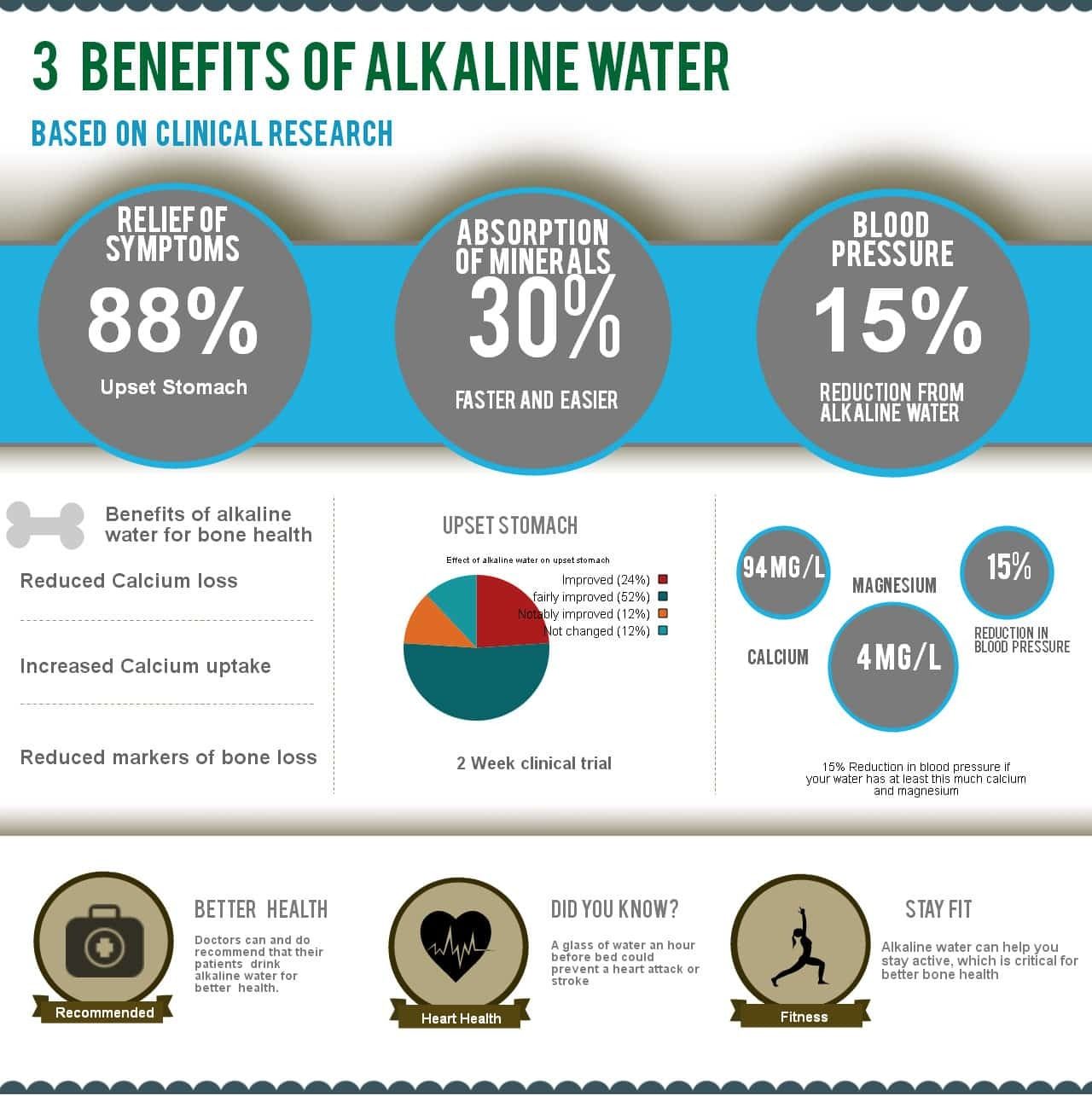Many people struggle to know which type of water is the best because the market is full of so many different types. Each one claims to have some wildly impressive additional health benefits. However, which of these claims are true and which ones are simply no more than clever advertisers stretching the truth to sell more products?
This article will help you identify the main types of water available today and tell you what the real health benefits are based on scientific evidence and research data.
By the end of this article you will be better informed and have a good idea of which water you think is best for your specific needs.
Table of Contents
Tap water
Tap water is the type of water that comes out of your water faucet. In most countries, it is usually supplied and controlled by a local government authority.
Who is it best for?
Everyone. It is generally safe for things like cooking, cleaning and laundry.
Biggest benefits
Cheap, easy to access for most people and usually a safe source of water.
Risks and issues
Tap water is generally safe to drink but some recent studies raise cause for concern. For instance, the EWG (Environmental Working Group) did a 5-year study looking at the quality of US tap water. The results showed that tap water supplied to all 50 states contained over 500 different contaminants.[1]
There are also some instances where a mineral like fluoride is added to the public water supply. For instance, around 10% of the UK population is supplied with fluoridated tap water to cut tooth decay.[2]
Bottled water
Bottled water is portable purified water that you can easily and conveniently buy whenever you’re thirsty.
Who is it best for?
Everyone. It is a good source of water for drinking.
Biggest benefit
Very convenient way to access clean safe drinking water.
Risks and issues
Some of the large water brands have admitted that their bottled water is nothing more than filtered tap water.
The biggest issue is the environmental cost. The creation of bottled water is insanely wasteful when it takes about 3 litres of water just to produce 1 litre.[3]
Also, plastics are extremely difficult to recycle. This means that your plastic bottle is likely to end up taking space in landfill sites. Or worse, it might end up in the ocean and poison not just the water but wildlife too.
Distilled water
Distilled water is sometimes called demineralized or deionized water. It is water that has everything removed including ions and minerals. It’s the purest form of water that you can get. It literally has nothing in it (good and bad). This means it has no contaminants, bacteria, minerals or nutrients.
Who is it best for?
Its high level of purity makes it the water of choice in places like laboratories and factories. It is also good if you want to drink water that is completely pure.
Biggest benefits
Distilled water has the highest level of purity and is almost sterile.
Risks and issues
There are no harmful risks associated with distilled water because it is so clean. However, some health reports suggest that it might not be best to always drink water that is completely empty of healthy minerals and nutrients.
Hydrogen water
This is water that contains hydrogen molecules that act as powerful antioxidants. The claim is these molecules are capable of helping your body neutralize harmful free radicals that contribute to disease development, reduce inflammation and slow down aging.
Who is it best for?
Those who are very health conscious and happy to pay extra money on something that may have health benefits – but not guaranteed.
Biggest benefits
The hype around hydrogen water is based on a serious of studies conducted on mice. The studies appear to show that this type of water has mild anti-inflammatory effects, particularly on the development of diseases like Parkinson’s.[4]
Risks and issues
Many of the big health claims are still inconclusive when similar studies were performed on human beings. Yet, some of the health claims are presented as fact even though there are no guarantees. Also, all the hype makes this type of water very expensive to buy.
Alkaline water
Alkaline Water is water that is at a pH level of 8 and above, which is higher than the pH of regular water. It has become more popular because research shows that an alkaline diet is generally good for health.[5]
Who is it best for?
Everyone because drinking alkaline water is generally considered to be safe.
Biggest benefits
The human body thrives when it is able to maintain a slightly alkaline pH. Consuming alkaline water may be able to help in this regard. Here’re more benefits of it:[6]
Risks and issues
A report from the World Health Organization cautions against regularly drinking water that has low mineral content. Alkaline water tends to be low on minerals and nutrients.
Boiled water
Boiling your water is generally one of the cheapest and most effective ways to purify your water. This is because putting water in temperatures above 185° F (85° C) will kill most pathogens within a few minutes.
Who is it best for?
Everyone. Boiled water is usually clean, safe and healthy to drink.
Biggest benefits
It is a great way to purify water that is not heavily contaminated.
Risks and issues
Boiling water will not purify water that is contaminated with things like lead, pesticides, nitrates and other chemicals. Also, some people don’t like the “flat taste” that sometimes comes with boiled water.
Which is the best water to drink?
The healthiest type of water is technically hydrogen water because of the potential health benefits of the antioxidants it contains.
However, the truth is that even the healthiest type of water can only ever have minor health benefits. Hydrogen water and any other type of water on this list will not be able to repair an unhealthy diet or lifestyle.
The biggest health benefits from hydration come from drinking water itself regardless of what type of water it is. The truth is that any type of water is good for you so long as it is clean and free of impurities.
The bottom line is that you should consider all the different “healthy” types of water on the market as ‘life enhancers’. Something that can mildly improve a lifestyle and diet that is already very healthy but not fix one that is not.
Featured photo credit: Mr Water Geek via mrwatergeek.com
Reference
| [1] | ^ | Environmental Working Group: State of American Drinking Water |
| [2] | ^ | The Telegraph: The extent of water fluoridation in the UK |
| [3] | ^ | Pacific Institute: Bottled Water and Energy Fact Sheet |
| [4] | ^ | Medical Gas Research: Drinking Hydrogen Water… Prevent 6-Hydorxydopamine-Induced Parkinson’s Disease In Rats. |
| [5] | ^ | Journal of Environmental and Public Health: The Alkaline Diet: Is There Evidence That an Alkaline pH Diet Benefits Health? |
| [6] | ^ | Life Ionizer: 3 Benefits of Alkaline Water based on Clinical Research |














































